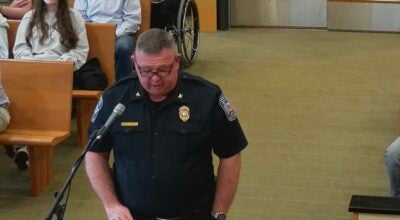Study Eyed For PE Cannery
Published 4:23 pm Thursday, December 1, 2011
PRINCE EDWARD – County Supervisors gave support to a feasibility study at their November 17 meeting that could lead to different management for the County's cannery.
In October, the board adopted a resolution, part of the Tobacco Commission agribusiness grant application, focused on adding freezing equipment and making some expansions at the facility to allow processing of low-acid foods for commercial sale.
“While we're making all of these additions and expansions at the cannery, the question comes into play of how can we really oversee those operations and make sure that this is going to be a successful endeavor and without losing the quality of service that we have for our home users and without taking that service away,” detailed County Planner Alecia Daves-Johnson.
She outlined an opportunity to partner in the operation.
Specifically, according to a memo in the board's packet from staff, the Bountiful Blue Ridge Planning Group, in partnership with the Virginia Foundation for Agriculture, Innovation and Rural Sustainability, has received a grant from the state's Department of Agriculture and Consumer Services to conduct a feasibility study for the construction of a food enterprise center in central Virginia. Pending County interest, the focus would be on exploring the Prince Edward cannery's potential.
Homegrown Virginia, which is a member of the Bountiful Blue Ridge Planning Group, according to the memo, “has approached the County with a proposal to provide the management for the facility based on the recommendations and guidance which will be presented through the feasibility study.”
Homegrown Virginia was, essentially, interested in some level of commitment from the County as to following the study and, with some discussion, the board agreed to a motion, to “take the feasibility study seriously” and, once they've read it, then make a commitment one way or the other.
That was enough to keep the study on track.
Ms. Daves-Johnson cited that there are several management options for the cannery-that the County could continue to try to operate the cannery for home users and either could hire additional staff and train them to operate the commercial side; the County could look to a partner to operate the commercial side of the operation and maintain their current role on the home user side; or the County could look to operate the cannery on a contract basis similar to the landfill operation where the contractor would oversee the operation and management of the cannery-maintaining the home user side of the operation, but also managing the commercial growth and drum up business, promote the facility, pulling in users and finding markets for products. (The county could have some managerial control through the contract.)
“Basically, I see the need for a food processing facility in Virginia. As of right now, there's not a place where a farmer can take produce to be canned or frozen, unless they're working with a very large outfit…,” Allie Hill owner of Homegrown Virginia commented in the meeting.
Farmers are limited to fresh market-and with fresh markets, there's a lot of the same kind of produce.
Tomatoes, apples and peaches are three of the state's most prolific commodities, Ms. Hill detailed. If a farmer gets 60 percent of that crop, it's a good year. If they can take the 40 percent and process it in their facility they can service a lot of the institutions and retail markets with food that is being wasted currently-either going to pig food or being turned right into the soil.
She detailed efforts to reach out to local markets.
“So we see a lot of supply, we see a lot of demand, and we see a facility that looks like it would be ideal for upgrading to a food enterprise center,” Ms. Hill said.
Current workers are expected to continue (with how that fits in as part of the feasibility study); Ms. Hill noted that they would like to maintain, if not improve, the number of access hours to the facility, possibly adding an evening or Saturday hours for those who work traditional job hours; and that home user fees are expected to remain the same for what is planned as a non-profit organization.
County Administrator Wade Bartlett also noted that they would not expect the County's cost to increase.
It will likely take a few months of study before there's enough information to fill in all the blanks. The final report on the feasibility study is expected in April or May.




